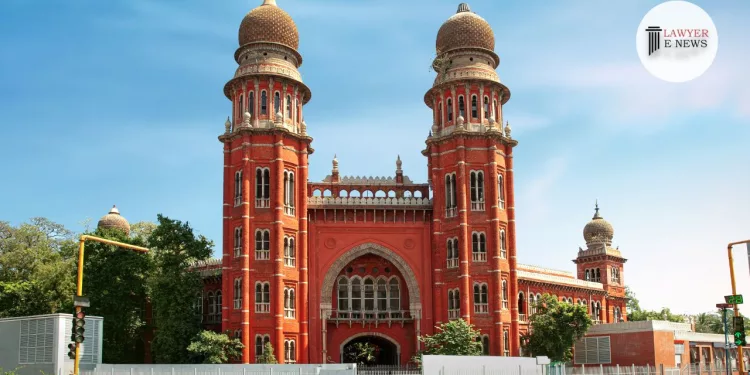Failure to Maintain Accurate Property Registers and Unauthorized Leasing Justify Removal: High Court of Madras Upholds Removal of Hereditary Trustee for Breaches of Tamil Nadu HR & CE Act

Justice N. Anand Venkatesh affirms government order removing G. Prem Anand from trusteeship of Sri Vengeeswarar, Azhagar Perumal, and Nagathamman Koil Devasthanam.
The High Court of Madras has upheld the removal of G. Prem Anand from his position as the hereditary trustee of the Sri Vengeeswarar, Azhagar Perumal, and Nagathamman Koil Devasthanam. The decision by Justice N. Anand Venkatesh emphasizes the importance of compliance with statutory requirements under the Tamil Nadu Hindu Religious and Charitable Endowments (HR & CE) Act, particularly in the preparation and maintenance of property registers and the leasing of temple properties.
- Prem Anand was appointed as the hereditary trustee of the Devasthanam in 1990, succeeding his father who was removed from the position in 1987. Despite several improvements to the temple and its revenue during his tenure, multiple charges were framed against Anand in 2012 and 2013, leading to his removal by a government order on October 12, 2015. Anand’s initial appeal against this order was remitted for reconsideration in 2022, resulting in the reaffirmation of his removal in 2024.
The court highlighted significant omissions in the property registers maintained by the appellant. Anand failed to include certain properties in the new register and could not provide the old register, contravening Sections 29 and 30 of the Act. Justice Venkatesh noted, “The properties that have suddenly vanished from the register measure an extent of acres 12.88 cents covering four survey numbers,” emphasizing the critical nature of these omissions.
Anand leased out temple properties without obtaining the necessary permissions from the Commissioner, in violation of Section 34 of the Act. The court found that these actions constituted a serious breach of trust. Justice Venkatesh remarked, “The appellant was expected to get the approval of the competent authority before effecting the name transfer in the tenancy records of the Devasthanam.”
The appellant collected donations for temple renovations without forming a Thiruppani committee and without proper authorization, violating Rules 53 and 56. The court underscored the procedural requirements for collecting donations, which Anand failed to comply with, stating, “The explanation given by the appellant was found to be not satisfactory.”
The judgment extensively discussed the principles of evaluating compliance with the HR & CE Act. The court reiterated the necessity for trustees to adhere strictly to statutory obligations, particularly in maintaining accurate records and obtaining proper authorizations. “The findings of the respondent do not suffer from any illegality or infirmity,” Justice Venkatesh concluded, supporting the decision to uphold the removal of Anand.
Justice Venkatesh observed, “Such an impression in the mind of the appellant is unsustainable since the properties that have suddenly vanished from the register measure an extent of acres 12.88 cents covering four survey numbers,” highlighting the gravity of the omissions.
The High Court’s decision to dismiss the appeal and uphold the removal of G. Prem Anand underscores the judiciary’s commitment to ensuring compliance with the Tamil Nadu HR & CE Act. This ruling reinforces the importance of meticulous record-keeping and adherence to statutory procedures by temple trustees, setting a precedent for future cases involving the management of religious institutions.
Date of Decision: June 26, 2024
Prem Anand v. The Additional Chief Secretary, Tourism, Culture & Endowments






